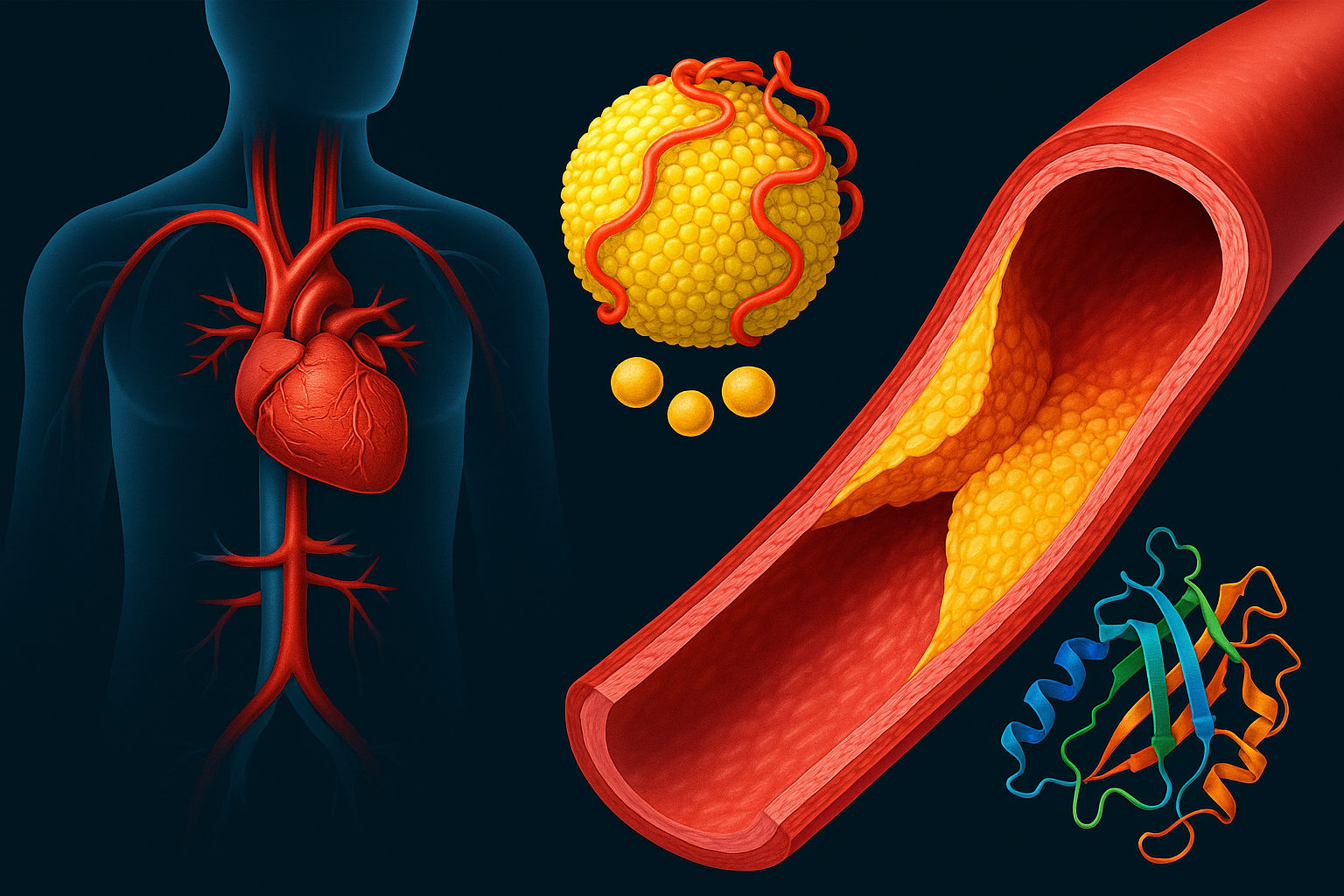A lab-built signaling protein called IC7Fc lowered cholesterol and triglycerides while slowing the growth of artery-clogging plaque in mice, according to Science Advances.
The peer-reviewed paper reports that IC7Fc dialed down inflammation in blood vessels and eased the lipid burden that drives atherosclerosis. Those twin effects matter: plaque buildup and vessel inflammation are what turn high cholesterol into heart attacks and strokes, the study said.
Researchers from different schools tested IC7Fc on mice that were likely to have excessive cholesterol and heart problems. They noticed that their arteries had fewer fatty deposits and their blood-fat levels were better. Science Advances said that the results build on earlier research that found the same chemical to be associated to better glucose management in models of type 2 diabetes.
Monash University, a collaborator on the project, said the results point to a possible “two-in-one” approach—metabolic support and heart protection—under one candidate therapy. Monash University added that benefits appeared even in lean mice that were genetically vulnerable to artery disease, suggesting the effect isn’t just about weight.
Caveats remain. IC7Fc is still experimental and has only been studied in animals. The paper underscores the need for more safety work and human trials before the candidate could be considered for patients who remain at risk despite standard cholesterol-lowering treatment, Science Advances said.
If future trials back these results, IC7Fc could complement existing therapies by targeting leftover risks—stubborn lipids and smoldering inflammation—that current drugs don’t fully address, the study said.
A global media for the latest news, entertainment, music fashion, and more.














